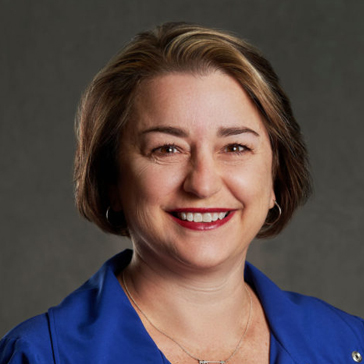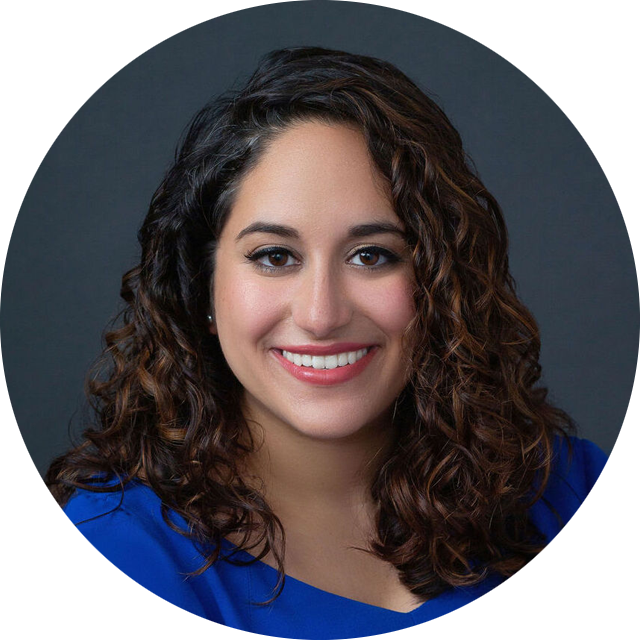At Education First, we hire the most talented and passionate educators and policy advisors in P-20 public education so that we can bring deep, practical expertise to our partners and deliver with quality the premium solutions we promise. We are excited to announce that Sheila Briggs joins Education First this week after three decades of service in our public school systems. To celebrate her arrival, we sat down with Sheila to hear more about why she cares so deeply about supporting systems leaders in redesigning to better meet the needs of ALL kids, particularly those students that our education systems have traditionally failed.
Education First: To get us started, tell us a bit more about why you choose to join Education First.
I took a pretty traditional pathway through my career. I started as a teacher, then became an elementary school principal. The next step was to move to the central office. My plan was to become an urban district superintendent—but I got an unexpected call from the State Superintendent (now Governor of WI), asking me to serve in his cabinet. Well…that really isn’t a request that you turn down. It was an amazing experience, and my plan was always to go back to my original pathway and become a superintendent. But when it was time to make that move, I did some reflecting. I had spent a decade building relationships across the nation, working with funders, and engaging with systems building work at the state and across states. When I saw the Principal opening at Education First, (cue the inspirational music) it represented everything I care about most, in an organization that is committed to measurable impact in education across the country with a focus on the students our systems have traditionally failed. I kinda feel like I hit the jackpot.
Education First: Education First is proud of its commitment to establish a Race-Equity culture across the organization. As a White woman, how do you define your role in leading on racial equity?
I think about this a lot. I am constantly asking myself in any situation whether I should be stepping up to lead by using my privilege to push for change, or whether I should be a co-conspirator by standing behind or next to a person of color leading the change. Sometimes it’s hard to know which is best in any situation but I don’t let that stop me. I know I’m not always going to get it right, and that is my burden to carry. I am constantly listening, learning, unlearning and advocating. I refuse to back down from anti-racist and equity work because I mess up, or because it gets hard. I keep striving to do better every day, to continue learning, and to do my best to ultimately advocate for positions, policies and actions that center Black, Indigenous and other students of color.
Education First: We talk a lot about system-wide coherence at Education First and you have some direct experience with this concept in your previous roles. From your perspective as a practitioner, why do you think coherence is so critical for success and what makes it so difficult to implement in practice? Do you have any advice for states and districts who are engaging in their own coherence work on how to make it work in practice?
I consider myself a coherence junkie—and I thank Education First for that. Participating in the Coherence Lab Fellowship as a state leader fed my deep need to build and rebuild systems for coherence rooted in equity. There is only limited time and resources in our states and our schools—yet we waste so much on incoherent projects and systems. Everyone is well meaning, and working very hard to better support our students. But, if we aren’t pulling in the same direction, we are never going to achieve the outcomes our students deserve. It’s so hard because our systems are designed to operate in silos—mostly because of funding sources. The people in these systems have to work very hard to fight against the disconnection and incoherence that naturally occurs. My advice would be to look at the systems and structures that perpetuate incoherence and work to disrupt those. Collaborative meetings need to move from updating one another—to changing the work that everyone does to be aligned and more effective. In Wisconsin, we practiced by building coherence around one project across the entire agency, and that had positive, lasting effects across the organization.
Education First: One of the biggest topics of conversation this year across states and districts is the strategic use of federal funding dollars to support reopening and recovery from COVID-19. What advice do you have for states and districts that are in the middle of that push now?
I know leaders are exhausted—this has been one of the most difficult periods of everyone’s educational career. And this is the most government funding we have and will probably ever receive. There is a strong pull to spend that money on promises of quick solutions but there is no quick fix. We have the chance to make the difference of a lifetime and we have to be smart.
At a minimum, every district needs to ensure they go through a thorough process to ensure their teachers have the highest quality, standards aligned instructional materials on the market, and that they are fully supported to implement those materials–because equity is found in the standards and instruction is key. For kids that are behind, intervention needs to be aligned to the core materials and teachers need to provide scaffolding support to students so they can access grade level instruction. For students needing more, high dosage tutoring is getting the best results. And finally, we need to be very targeted in our social and emotional learning and mental health supports–for students and staff. This is our chance to make the biggest difference in a generation, and as Lin Manuel Miranda would say, “do not throw away your shot”.
Prior to coming to Education First, Sheila Briggs was a teacher, principal, central office administrator, and most recently, Assistant State Superintendent of the Wisconsin Department of Public Instruction. Sheila has a PhD from the University of Wisconsin-Madison in Educational Leadership and Policy Analysis and did her doctoral research on the impact of racial consciousness in two high achieving urban districts.


